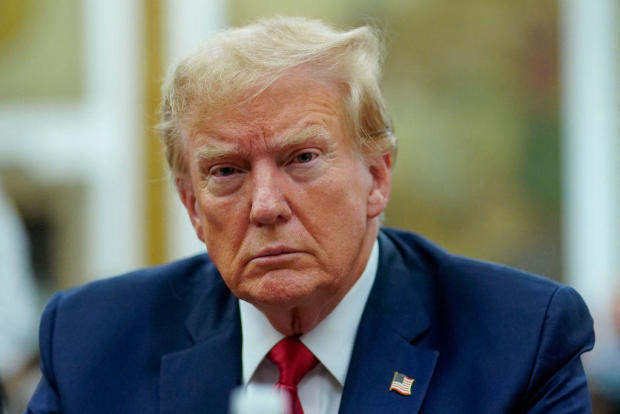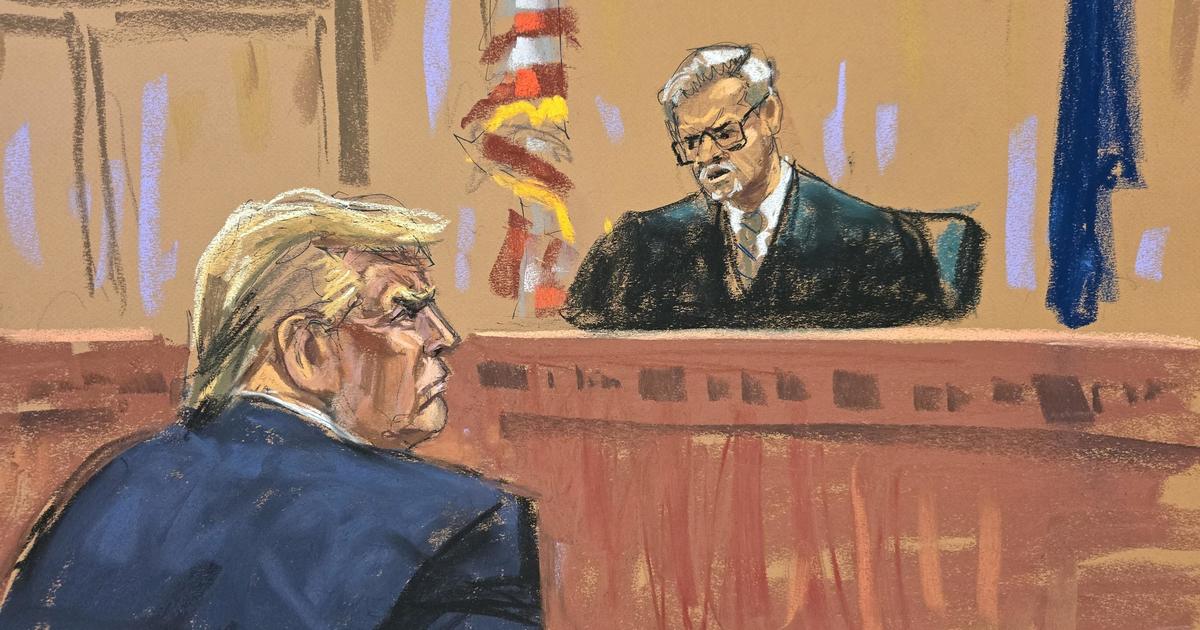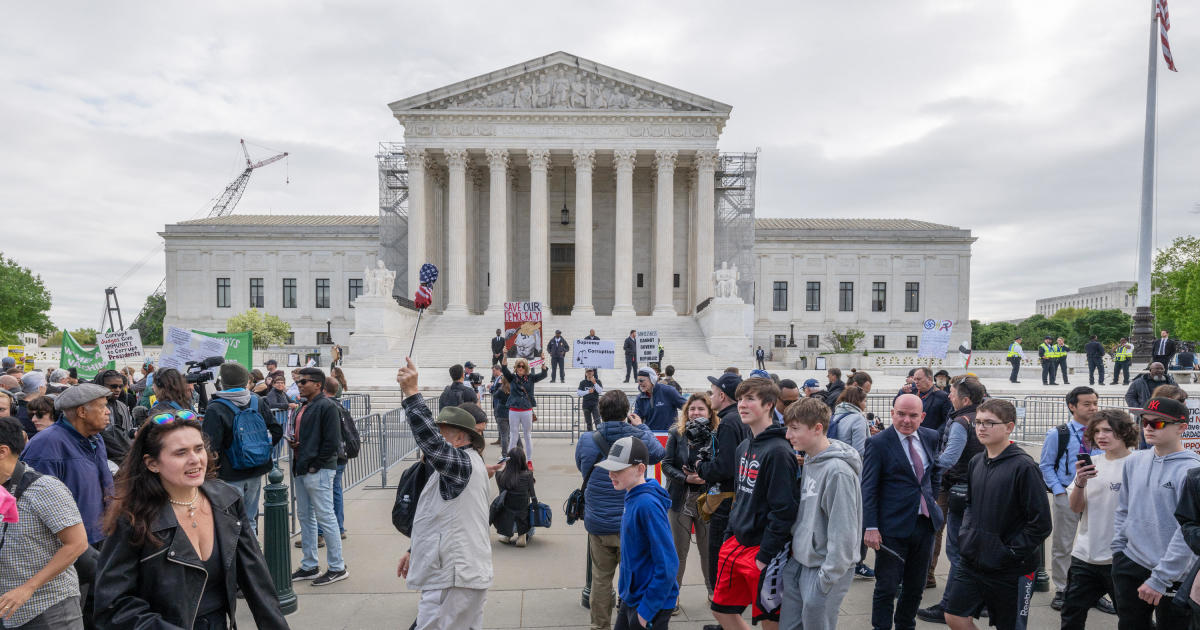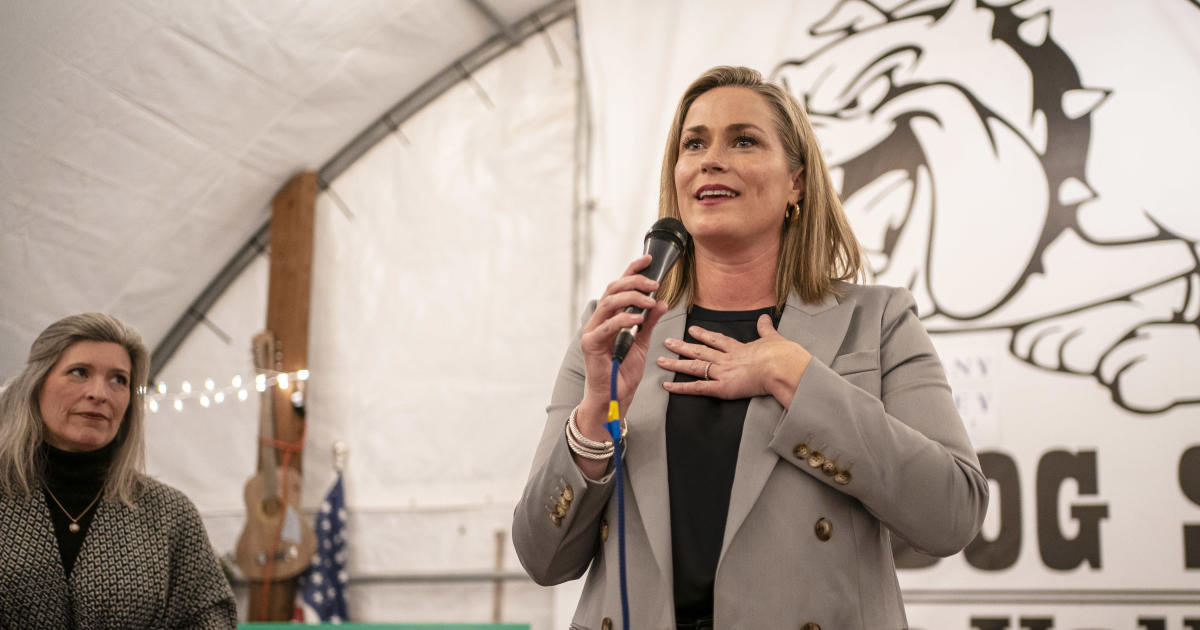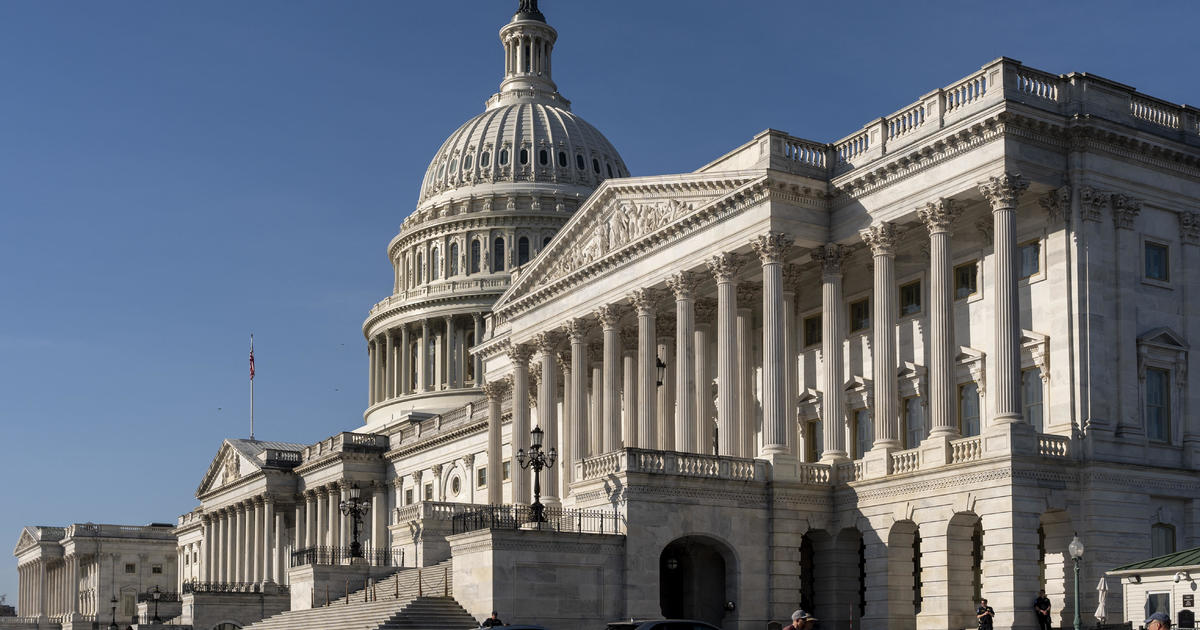Trump gag order in 2020 election case largely upheld by appeals court
Washington — A federal appeals court on Friday reinstated key aspects of a gag order limiting what former President Donald Trump can say in the case involving his alleged attempts to thwart the transfer of power after the 2020 presidential election
The unanimous three-judge panel for the U.S. Court of Appeals for the District of Columbia Circuit upheld the order from U.S. District Judge Tanya Chutkan to the extent that it prohibits the former president from making public statements about potential witnesses in the case "concerning their potential participation in the investigation or in this criminal proceeding." He is also barred from commenting about lawyers in the case other than the special counsel, members of court staff and lawyers' staff, and their family members.
Trump can, however, make statements criticizing the Biden administration, the Justice Department and special counsel Jack Smith. He can also continue claiming that the prosecution is politically motivated and that he is innocent of the four charges against him.
"We do not allow such an order lightly," U.S. Circuit Court Judge Patricia Millet wrote in an opinion for the court. "Mr. Trump is a former president and current candidate for the presidency, and there is a strong public interest in what he has to say. But Mr. Trump is also an indicted criminal defendant, and he must stand trial in a courtroom under the same procedures that govern all other criminal defendants. That is what the rule of law means."
The panel's ruling dissolves an administrative stay issued by the appeals court in early November, reinstating some of the limits on Trump's public comments.
Trump can appeal the decision to the full D.C. Circuit or seek emergency relief from the Supreme Court. He posted on his Truth Social platform that he intends to "appeal this decision" without specifying.
The special counsel's office declined to comment.
Steve Cheung, a spokesperson for Trump, said the D.C. Circuit panel "determined that a huge part of Judge Chutkan's extraordinarily overbroad gag order was unconstitutional. President Trump will continue to fight for the First Amendment rights of tens of millions of Americans to hear from the leading Presidential candidate at the height of his campaign. The Biden-led witch hunts against President Trump and the American people will fail."
The appeals court's ruling
In its ruling, the D.C. Circuit said that the First Amendment "unquestionably affords political speech robust protection." But the judges added that the existence of a political campaign or political speech "does not alter the court's historical commitment or obligation to ensure the fair administration of justice in criminal cases."
"A trial participant's engagement in political speech cannot degrade or diminish that essential judicial function," Millett wrote. "Mr. Trump acknowledges as much by accepting his pretrial release condition that he cannot speak to witnesses in the case about political matters or otherwise. He cannot evade that legitimate limitation by dressing up messages to witnesses in political-speech garb."
Trump is currently in the midst of his third campaign for the presidency and is leading the field of Republicans vying for the party's presidential nomination.
The three judges — Millett, and Judges Cornelia Pillard and Bradley Garcia — said they agree with the district court that some aspects of Trump's public comments "pose a significant and imminent threat" to the integrity of the ongoing criminal prosecution, "warranting a speech-constraining protective order." But the appeals court said the order put in place by Chutkan "sweeps in more protected speech than is necessary."
The judges wrote that the decision rested on a balance between ensuring Trump's right to free speech and the right to a fair trial, a line that weighed on the panel during its oral proceedings last month. The appeals court ultimately ruled that while political speech is the "the lifeblood of American democracy," the public and Trump both have a right to a fair and impartial trial, not one that is "prejudiced in his favor."
"Like any other criminal defendant, Mr. Trump has a constitutional right to speak. And his millions of supporters, as well as his millions of detractors, have a right to hear what he has to say," Millett wrote for the panel. "Also like any other criminal defendant, Mr. Trump does not have an unlimited right to speak."
She later wrote: "The First Amendment does not afford trial participants, including defendants, free rein to use their knowledge or position within the trial as a tool for encumbering the judicial process."
The opinion from the D.C. Circuit cites several of Trump's social media comments, including his August warning, "If you go after me, I'm coming after you!" as well as his claims that Chutkan is a "fraud dressed up as a judge," a "radical Obama hack" and a "biased, Trump hating judge." The panel also noted his posts targeting potential witnesses named in the indictment returned by a federal grand jury in early August, including former Vice President Mike Pence and former Attorney General Bill Barr.
Trump was charged with four counts related to what Smith said was an alleged effort to thwart the transfer of presidential power after the 2020 election. The former president has pleaded not guilty.
Friday's ruling was at times critical of Chutkan's finding, with the judges saying it was not "narrowly tailored," echoing criticisms of the original gag order by Trump's legal team. Still, they said the former president has engaged in conduct that poses a dual "threat to the functioning of the criminal trial process." The judges wrote that Trump's public comments could affect witnesses participating in the upcoming trial and staff working on the case.
"Messages designed to generate alarm and dread, and to trigger extraordinary safety precautions, will necessarily hinder the trial process and slow the administration of justice," the opinion said.
Scott Michelman, legal director for the American Civil Liberties Union of D.C., said the group was "pleased that the court applied a rigorous First Amendment standard to safeguard speech about the judicial process and accordingly narrowed the gag order to enable the open discussion of matters of great public concern." The ACLU filed a brief in the case supporting Trump's position that the original order was overbroad.
"Today's order is properly tailored, reflecting an appropriate balance of Mr. Trump's free speech rights with the court's legitimate need to protect the judicial process from a defendant who has demonstrated his eagerness to interfere with it," Michelman said in a statement.
Chutkan issued her order limiting Trump's public comments about the case in October and restricted the former president from making inflammatory remarks targeting Smith, his staff, court personnel and possible witnesses who may be called to testify in the case.
The decision to impose the gag order came in response to a request from Smith. Prosecutors, however, had sought far-reaching restrictions targeting statements from Trump about the Biden administration, the Justice Department and the District of Columbia, where the trial is scheduled to begin in March.
The former president has repeatedly accused the Justice Department of pursuing a politically motivated prosecution against President Biden's likely opponent in the 2024 presidential election and has called Washington, D.C., "filthy and crime ridden."
Katrina Kaufman and Robert Legare contributed reporting.
